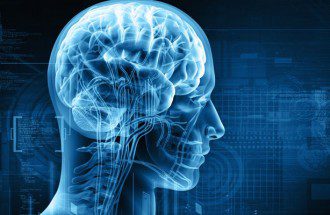Contributing writer for Wake Up World
Since childhood, most of us received the memo loud and clear that sugar is bad — usually where our teeth are concerned. As we grew older, other worries came into the forefront, especially during teenage and adult years where body image played an important role in modifying our sweet indulgences. Add a few more years and the threat of diabetes, heart disease, cancer and inflammation became a motivating force to steer clear of the sweet stuff.
Now scientists have added yet another reason: poor brain function — particularly inhibited learning and memory. But it’s a specific type of sugar that wields such devastating effects — one that can be found in almost every form of processed food in the U.S. and beyond. That sugar is fructose.
Glucose vs fructose: The devil is in the details
Usually, we tend to lump all sugars together as harmful, but emerging science is beginning to realize that not all sugars are the same. Research presented at the annual meeting of the American College of Neuropsychopharmacology discovered that the brain responds very differently depending on the type of sugar. Take for example fructose. When your brain is hit with this sugar, it excites the reward circuits in the brain, triggering a feeling of hunger whenever a food cue is present — like a television commercial for a restaurant. In contrast, when we ingest glucose, the brain reacts by prompting a feeling of satiety, instead of hunger.
Such wildly different reactions can mean the difference between obesity and maintaining a healthy weight. If we would like to avoid problematic forms of sugar, where do we begin? Medical Daily explains the three kinds of sugar and where they can be found in the food supply:
“Technically, there are three types of simple sugar: glucose, fructose, and galactose, which is not usually added to commercially processed foods as it is not as sweet. Glucose is the body’s primary source of energy and is usually produced through the breakdown of complex carbohydrates. Foods high in glucose include dried fruits, fresh fruits, and to a lesser extent grains, beans, vegetables, and nuts. While the same foods, especially fruit, also contain fructose, this type of simple sugar is added to many processed foods in the form of high-fructose corn syrup.”
Studies have established that glucose diminishes activity in the area of the brain called the hypothalamus, whereas fructose doesn’t. The hypothalamus is in charge of a range of metabolic processes — including hunger and thirst. When rats were fed fructose, researchers found that there was a smaller increase of satiety hormones compared to when the animals consumed glucose — the latter experiment prompted the rats to act as if sated.
Next, the research team tested their theory on human subjects, enrolling 24 men and women volunteers, ages 16-25. Each was given a beverage containing either fructose or glucose. While the participants viewed images of food, the researchers took fMRI scans of their brains. The volunteers documented how much they wanted to eat with each new image that they viewed.
The findings?
Food cues activated the brain’s “reward circuit” with both types of sugar. However, the activation was more pronounced in the group who consumed the fructose drink. They also reported higher levels of hunger and motivation to eat.
As if expanding waistlines and all the health complications tied to obesity weren’t enough, fructose has also been shown to play a major role in blunting our intelligence, hindering memory and obstructing learning.
The truth about your brain on fructose
“A range of diseases — from diabetes to cardiovascular disease, and from Alzheimer’s disease to attention deficit hyperactivity disorder — are linked to changes to genes in the brain. A new study by UCLA life scientists has found that hundreds of those genes can be damaged by fructose, a sugar that’s common in the Western diet, in a way that could lead to those diseases.” ~ UCLA Newsroom
Americans consume an inordinate amount of fructose — mainly in the form of foods sweetened with high-fructose corn syrup, an inexpensive liquid sweetener made from corn starch. According to the Department of Agriculture, Americans ingested a staggering 27 pounds of high-fructose corn syrup in 2014. Fructose is also found in fruit, but the fiber significantly slows absorption of the sugar. Plus it contains other healthy elements, which help to mitigate any negative effects.
During the study, researchers from The University of California, Los Angeles, sequenced more than 20,000 genes in test animals and found that over 200 genes in the hippocampus (the region that regulates learning and memory) were altered by fructose.
“The altered genes they identified, the vast majority of which are comparable to genes in humans, are among those that interact to regulate metabolism, cell communication and inflammation,” states the UCLA press release. Conditions associated with these alterations include Parkinson’s disease, depression, bipolar disorder and other brain diseases.
The team discovered that fructose disrupts the genes by removing or adding a biochemical group to cytosine — one of the nucleotides comprising DNA. These changes are responsible for turning genes “on” or “off.”
Lead researcher Fernando Gomez-Pinilla found in earlier research that “fructose damages communication between brain cells and increases toxic molecules in the brain; and that a long-term high-fructose diet diminishes the brain’s ability to learn and remember information.” He advises avoiding sugary drinks, reducing desserts and consuming overall less sugar.
The good news is that if one has already suffered harmful changes produced by fructose, they can be reversed by the omega-3 fatty acid called docosahexaenoic acid, or DHA.
“DHA changes not just one or two genes; it seems to push the entire gene pattern back to normal, which is remarkable,” said Xia Yang, a senior author of the study and a UCLA assistant professor of integrative biology and physiology. “And we can see why it has such a powerful effect.”
DHA strengthens the connections in the brain and strengthens learning and memory. The omega-3 fatty acid is abundant in wild salmon as well as walnuts, flaxseed, vegetables and fruits.
While DHA appears to be exceptionally beneficial, it’s not a cure all — more research is needed to establish the extent of it’s ability to reverse damage to human genes.
Article sources:
- www.medicaldaily.com/your-brain-responds-differently-fructose-glucose-and-causes-you-want-eat-313650
- www.newsroom.ucla.edu/releases/fructose-alters-hundreds-of-brain-genes-which-can-lead-to-a-wide-range-of-diseases
- www.newsroom.ucla.edu/releases/this-is-your-brain-on-sugar-ucla-233992
About the author:
 Carolanne Wright enthusiastically believes if we want to see change in the world, we need to be the change. As a nutritionist, natural foods chef and wellness coach, Carolanne has encouraged others to embrace a healthy lifestyle of organic living, gratefulness and joyful orientation for over 13 years.
Carolanne Wright enthusiastically believes if we want to see change in the world, we need to be the change. As a nutritionist, natural foods chef and wellness coach, Carolanne has encouraged others to embrace a healthy lifestyle of organic living, gratefulness and joyful orientation for over 13 years.
Through her website Thrive-Living.net, she looks forward to connecting with other like-minded people from around the world who share a similar vision. You can also follow Carolanne on Facebook, Twitter and Pinterest.
Further reading from Carolanne Wright:
- Don’t Ask, Just Plant — Taking Back Our Food Sovereignty with Guerrilla Gardening
- Plastic Waste in the Ocean Will Outnumber Fish by 2050
- Seed Bombs: A Creative (and Fun) Mission to Save the Bees and Butterflies
- Mind Control, Subliminal Messages and the Brainwashing of America
- Autistic Boy with Higher IQ Than Einstein Discovers Gift After Removal from State-Run Therapy
- Monsanto Charged with Crimes Against Nature and Humanity – Set to Stand Trial in 2016
- Dr Sebi: The Man Who Cures Aids, Cancer, Diabetes and More
- Politicians in California May Soon be Forced to Wear Corporate Sponsor Patches Like Nascar Drivers
- Plastic-Eating Mushroom Discovered in the Amazon Rainforest — A Solution for Our Trash Saturated World?
- Big Pharma and Organized Crime — They are More Similar Than You May Think
- Over 100 Scientific Studies Agree: Cannabis Annihilates Cancer
- Emotional Energetic Healing: The Future of Medicine is Here
- Why Every Parent Should Consider Unschooling
- The Greenhouse of the Future: Grow Your Own Food Year-Round With This Revolutionary System
- First U.S. City Produces More Electricity Than It Uses — With 100% Renewable Technology

If you've ever found value in our articles, we'd greatly appreciate your support by purchasing Mindful Meditation Techniques for Kids - A Practical Guide for Adults to Empower Kids with the Gift of Inner Peace and Resilience for Life.
In the spirit of mindfulness, we encourage you to choose the paperback version. Delve into its pages away from screen glare and notifications, allowing yourself to fully immerse in the transformative practices within. The physical book enriches the learning process and serves as a tangible commitment to mindfulness, easily shared among family and friends.
Over the past few years, Wake Up World has faced significant online censorship, impacting our financial ability to stay online. Instead of soliciting donations, we're exploring win-win solutions with our readers to remain financially viable. Moving into book publishing, we hope to secure ongoing funds to continue our mission. With over 8,500 articles published in the past 13 years, we are committed to keeping our content free and accessible to everyone, without resorting to a paywall.









